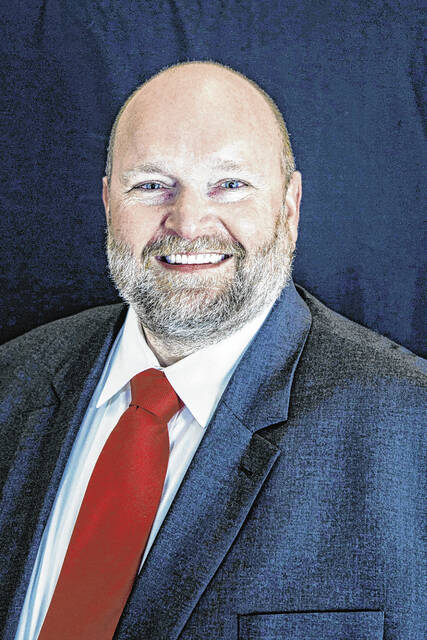The ongoing effort to make countywide broadband internet service available locally is likely to become more competitive.
Bartholomew County government is now advertising for proposals from all interested vendors for the installation of countywide fiber broadband service. The bids will be open by the three county commissioners during their weekly 10 a.m. meeting on Monday, Dec. 20.
Three months ago, the commissioners approved a letter of intent with a New York City infrastructure investment company to install fiber-optic lines to the vast majority of Bartholomew County. Fiber-optic lines provide what is needed for gig-speed upload and download capabilities on modern computers.
One caveat originally requested by Meridiam Infrastructure North America Corp. was that the New York company be allowed to become the exclusive provider of new fiber-optic cables for 25 years. In exchange, Meridiam was willing to bring the potential of high speed internet to 85% of all Bartholomew County homes outside the Columbus city limits.
While the three commissioners unanimously approved the letter on Sept. 27, commissioners Chairman Larry Kleinhenz said he would ask Meridiam to guarantee minimum coverage to 90% of all non-municipal homes. He also said he would attempt to negotiate even further in order to raise the coverage area to 95%.
In announcing the request for proposals this week, commissioner Tony London said the county will be investing $4 million from their American Rescue Plan Act (ARPA) funds into countywide broadband service. The county received about $8 million last spring in ARPA funds, while the remaining $8.2 million will be received in 2022, county Auditor Pia O’Connor said.
“Because of this investment, we want to make sure every provider that wants to look at this project can give a proposal,” London said this week. “We want to look at all of them, because we don’t want anyone to feel like they are not welcome to participate in this process.”
In addition to being one of the top county executives, London also chairs the Bartholomew County Broadband Initiative Committee.
County Attorney Grant Tucker assured the commissioners the letter of intent only obligated the county to “act in good faith” to work with Meridiam to come up with a contract by the end of the year. For the past three months, the commissioners were still free to seek requests for other vendors, and would not be locked into any obligation until an actual contract is signed.
If such a contract was approved in early 2022, the New York City company stated they would embark on an estimated $50 million project to bring gig-speed internet service to the vast majority of Bartholomew County.
Meridiam was not discussed in any detail by the three commissioners during this week’s public meeting. But what they did talk about was being “inundated by phone calls” from angry residents who mistakenly believed they should have high speed internet service available by now.
While there’s little to no argument that high-speed internet has become increasingly important, it still costs the same to extend fiber-optic cable to 30 homes in a half-mile stretch of Columbus as it does to reach just two homes in a half-mile stretch of rural Bartholomew County, London said.
“We’re working with folks to bridge that digital divide, and we’ve moved mountains to make this happen for over a year,” London said. “It’s coming. But there are still a lot of hoops to jump through, and finding a partner who is willing to bridge that digital divide — knowing they are not going to make a lot of money for awhile — is difficult.”
For that reason, the commissioners are not providing any estimate or timetable on when countywide broadband internet would become a reality.
In trying to explain the delay, London said extending fiber-optic cable is different from providing basic utilities because the internet is completely non-regulated. There is no law requiring any public or private organization to bring internet service to all residences and businesses, he said.
“It is the Wild West, and companies are trying — rightfully so — to make the most money for their stockholders,” London said. “One thing that does not make a lot of fast money is bringing internet to an area that is not dense in population.”
While most internet providers want to recoup their investment in five to seven years, Meridiam was offering a much-longer recoup time of 25 years, London said in September. At the same time, the New York firm also claimed they could start with gig-speed fiber for less than $100 a month that could be adjusted to 10 gigs.
No other company had offered Bartholomew County anything close to what Meridiam has proposed, Tucker said in September.
Efforts are also continuing to make high-speed service more affordable to qualified low-income families, London said.
According to the White House website, ARPA funds are being distributed to provide direct relief to Americans impacted by COVID-19, rescue the U.S. economy and to invest in ways to eradicate the virus.
The use of these funds to create countywide broadband service is strongly encourage by the Biden administration due to expanded work-from-home requirements or options, remote learning for public school students and a growing dependence on video conferencing — especially for physical and mental health-related issues.





